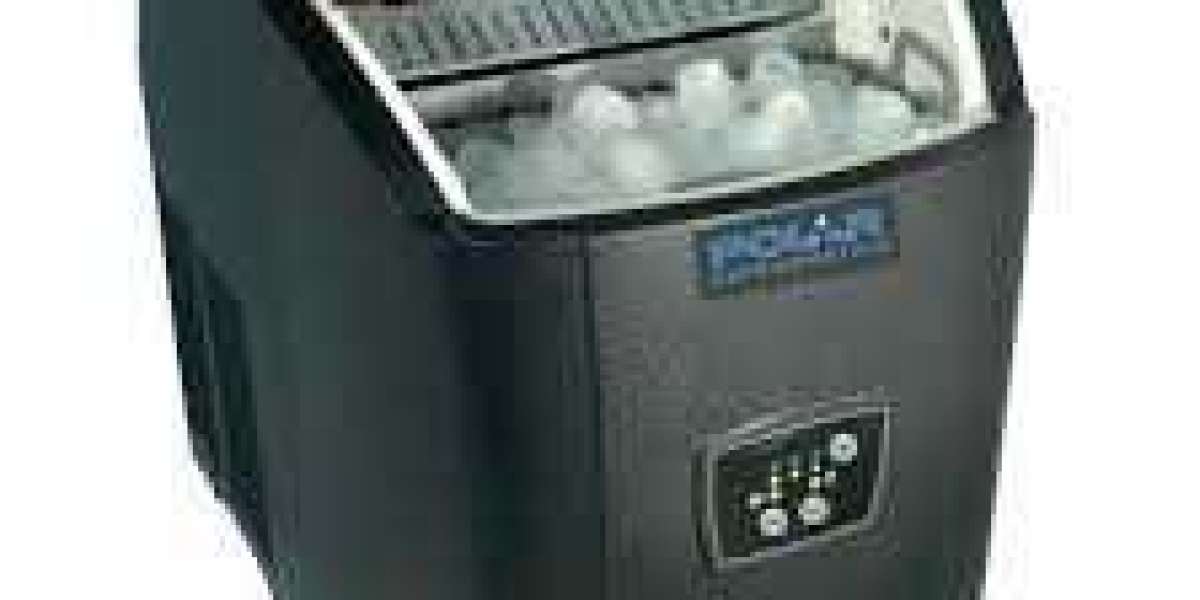Introduction
Ice makers are a staple in many modern kitchens and commercial settings, offering convenience and efficiency when it comes to producing ice. From hosting a summer party to cooling down a drink on a hot day, having a reliable ice maker can be a game-changer. This guide explores the different types of ice makers, their benefits, and tips for selecting the best one for your needs.
Types of Ice Makers
Freestanding Ice Makers Freestanding ice makers are standalone units that can be placed anywhere in your kitchen or bar area. They are designed to produce large quantities of ice quickly and are often equipped with features like adjustable ice thickness and a built-in storage bin. These units are ideal for homes with ample space or for commercial settings where high ice production is essential.
Under-Counter Ice Makers Under-counter ice makers are built to fit seamlessly beneath your kitchen counter or bar, offering a sleek and integrated look. They are a great option if you want a dedicated ice maker without taking up extra floor space. These units typically have a smaller capacity compared to freestanding models but are efficient and convenient for everyday use.
Portable Ice Makers Portable ice makers are compact and lightweight, making them perfect for small kitchens, offices, or even RVs. They are easy to move around and require no permanent installation. While they produce less ice than larger units, they are perfect for occasional use or for those who need an ice maker in different locations.
Refrigerator Ice Makers Many modern refrigerators come with built-in ice makers, which are integrated into the fridge’s design. These ice makers are convenient for daily use and eliminate the need for a separate appliance. However, their capacity is generally limited compared to standalone ice makers, and they might require regular maintenance to ensure proper function.
Benefits of Using an Ice Maker
Convenience: Ice makers provide a constant supply of ice, eliminating the need to fill and freeze ice trays. This is particularly beneficial for households that entertain frequently or for businesses that require large quantities of ice.
Efficiency: Many ice makers can produce ice more quickly than traditional ice trays or freezer ice makers. This can be crucial during events or in commercial settings where speed is important.
Variety of Ice Types: Some ice makers offer different types of ice, such as nugget ice, clear ice, or bullet ice. Each type has unique qualities, and having the option to choose can enhance the quality of drinks and culinary presentations.
Space-Saving: Under-counter and portable ice makers offer space-saving solutions for kitchens or bars with limited room. They provide the functionality of an ice maker without taking up valuable counter space.
Tips for Choosing the Right Ice Maker
Assess Your Needs: Consider how much ice you need and how frequently you use it. For regular use, a larger freestanding or under-counter unit might be necessary. For occasional use, a portable model may suffice.
Consider Ice Type: Different ice makers produce different types of ice. If you have a preference, such as nugget ice for its chewiness or clear ice for its aesthetic appeal, make sure the ice maker you choose offers that option.
Check Capacity: Ice makers come in various sizes, so think about how much ice you need to store. Larger units are suitable for high-demand situations, while smaller models are better for limited use.
Look for Features: Some ice makers come with additional features like water filtration systems, automatic cleaning functions, and adjustable ice settings. Determine which features are important to you and choose accordingly.
Evaluate Installation and Maintenance: Consider the installation requirements of the ice maker, especially for under-counter models. Regular maintenance, such as cleaning and descaling, is also important for ensuring the longevity and performance of your ice maker.
Conclusion
Ice makers offer a blend of convenience, efficiency, and variety that can significantly enhance your daily life or business operations. By understanding the different types of ice makers and their benefits, you can make an informed decision that best suits your needs. Whether you opt for a freestanding unit, an under-counter model, a portable ice maker, or a refrigerator-integrated ice maker, having a reliable source of ice can make your life cooler and more enjoyable.














